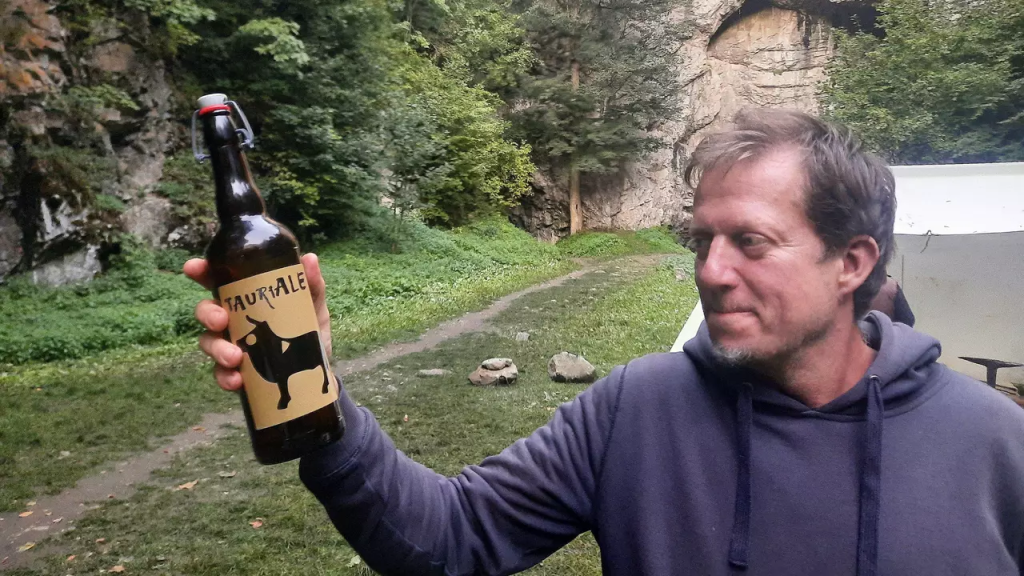Skip to comments.
Pollen could hold clues to mysteries of early human migration
Popular Science / Arkeonews ^
| September 22, 2023
| Laura Baisas
Posted on 09/23/2023 9:55:07 PM PDT by SunkenCiv
...Warmer temperatures and more humidity may have helped the forests in the region grow and expand north into present-day Siberia. The theory hinges on the presence of pollen in the region's sediment record...
It is also likely that both warm and cold climates would have played a role in this travel. The Pleistocene Epoch is known for huge climatic shifts...
To piece together what the climate could have looked like during a possible warm period about 45,000 to 50,000 years ago, researchers working on the study created a record of the vegetation and pollen from the Pleistocene found around Lake Baikal in present-day Siberian region of Russia with the oldest archeological traces of Homo sapiens in the area.
Sediment cores were used to extract data for a pollen timeline, and the study suggests that the dispersal of humans occurred during some of the highest temperatures and highest humidity of the late Pleistocene. The presence of more ancient pollen, and thus plant life, in the record shows evidence that coniferous forests and grasslands may have spread further throughout the region and could support foraging for food and hunting by humans. According to study author and University of Kansas anthropologist Ted Goebel, the environmental data combined with archeological evidence tell a new story of the area...
"There is one human fossil from Siberia, although not from Lake Baikal but farther west, at a place called Ust'-Ishim," Goebel said. "Morphologically, it is human, but more importantly, it's exceptionally well-preserved. It has been directly radiocarbon-dated and has yielded ancient DNA, confirming it as a representative of modern Homo sapiens, distinct from Neanderthals or Denisovans, or other pre-modern archaic humans."
(Excerpt) Read more at popsci.com ...
TOPICS: Food; History; Science; Travel
KEYWORDS: godsgravesglyphs; oenology; pollen; zymurgy
1
posted on
09/23/2023 9:55:07 PM PDT
by
SunkenCiv
To: 240B; 75thOVI; Adder; albertp; asgardshill; At the Window; bitt; blu; BradyLS; cajungirl; ...
2
posted on
09/23/2023 9:57:54 PM PDT
by
SunkenCiv
(NeverTrumpin' -- it's not just for DNC shills anymore -- oh, wait, yeah it is.)
To: SunkenCiv
> The Pleistocene Epoch is known for huge climatic shifts...
And they did it *without* SUVs. Wow, those Neanderthals and Denisovans were amazing.
3
posted on
09/23/2023 10:25:59 PM PDT
by
Flatus I. Maximus
(Everything I need to know about Islam, I learned on 9/11.)
To: SunkenCiv
4
posted on
09/24/2023 12:31:36 AM PDT
by
ComputerGuy
(Heavily-medicated for your protection)
To: SunkenCiv
So we migrated to look for Claritin?
5
posted on
09/24/2023 3:12:35 AM PDT
by
Adder
(End fascism...defeat all Democrats.)
To: Adder
And disposable tissue. Lots of it.
6
posted on
09/24/2023 5:13:29 AM PDT
by
SunkenCiv
(NeverTrumpin' -- it's not just for DNC shills anymore -- oh, wait, yeah it is.)
Disclaimer:
Opinions posted on Free Republic are those of the individual
posters and do not necessarily represent the opinion of Free Republic or its
management. All materials posted herein are protected by copyright law and the
exemption for fair use of copyrighted works.
FreeRepublic.com is powered by software copyright 2000-2008 John Robinson

